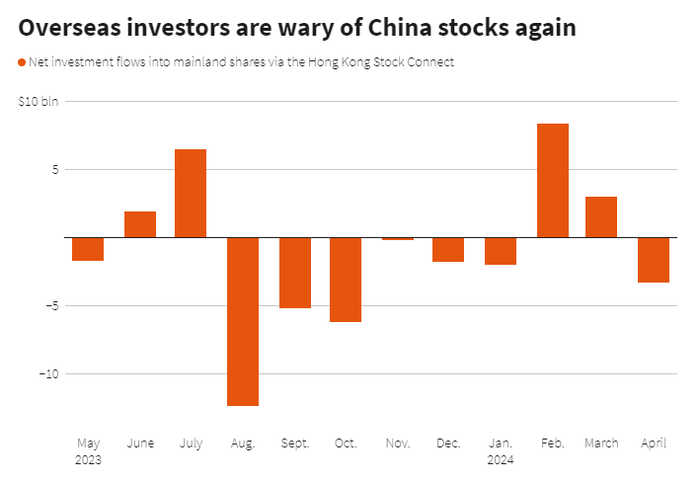Published 13:19 IST, April 23rd 2024
China trading-data restrictions are self-defeating
Shanghai and Shenzhen stock exchanges said they would stop publishing real-time data of foreign investors’ trades.
- Republic Business
- 2 min read

See less evil. Buying and selling shares in the People’s Republic is about to get harder. This month the Shanghai and Shenzhen stock exchanges said they would, as of mid-May, stop publishing real-time data of foreign investors’ trades into and out of domestic stocks. The duo is presenting the move as a technical change to bring them into line with bourses outside China. It smacks, though, of yet another attempt to prop up sentiment.
The current setup comes courtesy of the Stock Connect, an almost decade-old system linking the two mainland exchanges with their peer in Hong Kong. It allows foreigners to trade domestically listed Chinese shares. The rolling stream of live trading data has served as a high-profile measure of overseas demand ever since.
For most of the past year or so, overseas investors have been pulling capital out of the market. That’s at odds with Beijing’s efforts to pump up stocks, from curbing divestment by local funds to having state firms buy shares; one of them, Central Huijin Investment, poured at least $41bn into domestic exchange-traded funds in the first quarter, Reuters reported.

A state-run newspaper, The Economic Information Daily, first flagged in October the possibility of curtailing real-time foreign trading data, pegging it to mounting outflows of overseas capital. It argued that reducing information could prevent ordinary investors from making decisions based on “partial or wrong understanding”. Those concerns appear to be back, with Stock Connect figures showing offshore investors on track to post net sales this month for the first time since January.
Shanghai and Shenzhen now intend only to provide net daily flows after markets close. The diminished transparency is bad news for hedge funds and quantitative investors, which Beijing has long disdained, assigning them partial blame for a stock-market implosion in 2015.
Nine years later, these fast-money players have actually been among the only sources of foreign inflows in recent months, traders have told Breakingviews. Global long-only fund managers are likely to interpret the change as more evidence for their lack of confidence in China’s stock market. And, perhaps worse for Beijing, China’s vast army of retail traders will lose crucial market intelligence on when foreign investors buy and sell stocks. Irking so many different types of shareholders is likely to lead to more market ructions, not fewer.
Updated 13:19 IST, April 23rd 2024